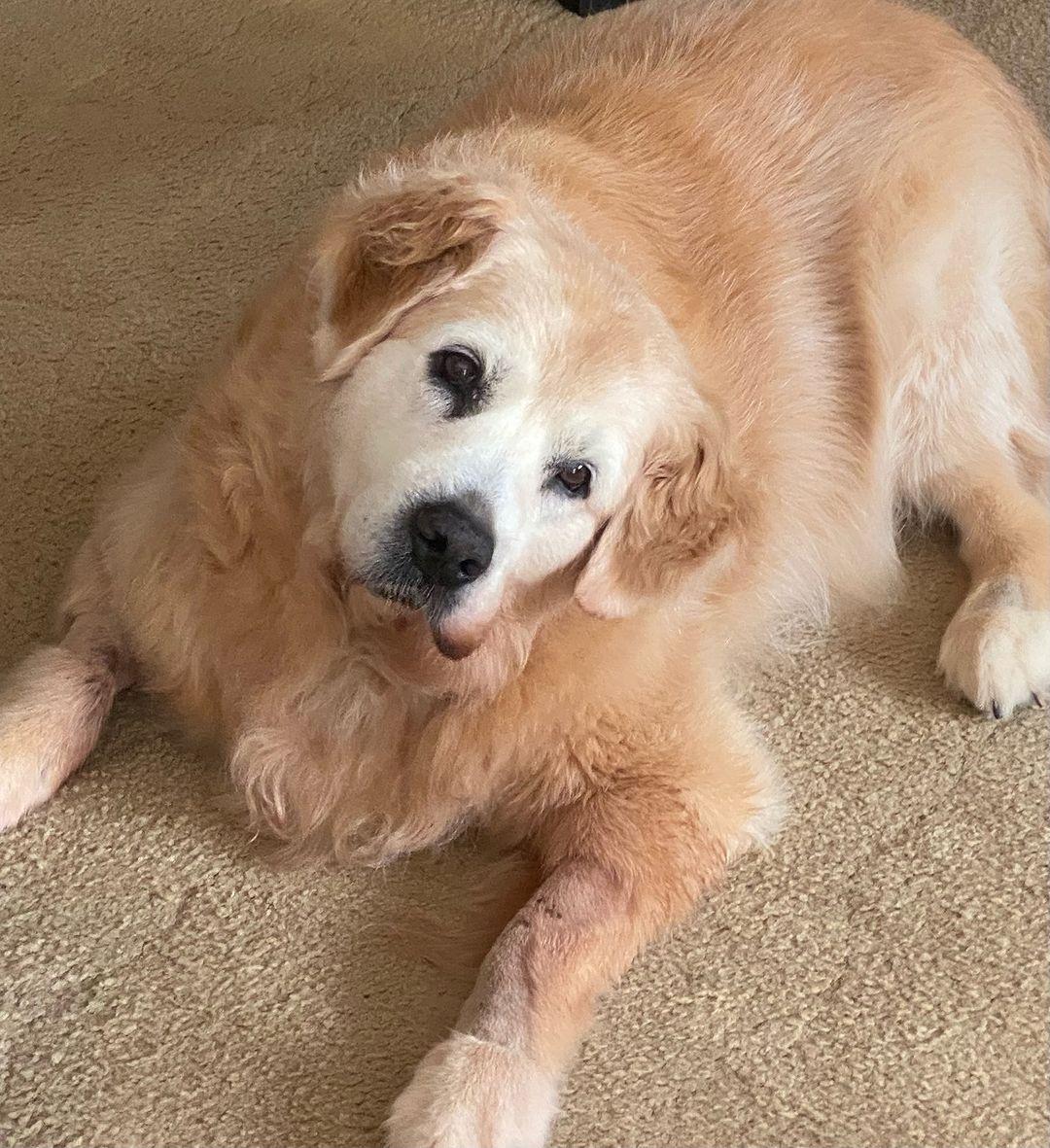A few weeks ago, we thought we were about to say goodbye to Cooper.
One Friday morning, he woke up, picked at his breakfast, and went outside. He seemed slow, off, and a bit disoriented. Over the course of the morning, his condition rapidly declined. He couldn’t walk properly, wobbled, and fell frequently. He appeared confused and lost in the home he’d known for seven years and refused to eat. As we anxiously awaited a call back from the vet, things seemed to worsen by the minute.

What we feared to be a major stroke turned out to be something casually known as “old dog disease”—vestibular disease. Amazingly, Cooper returned to his normal self within a few days.
It was a terrifying and jarring experience. Here’s what we learned about vestibular disease in senior dogs, just in case you ever find yourself in a similar situation.
As an Amazon Associate, I earn from qualifying purchases. This site uses affiliate links, which means I may make a tiny commission on products purchased through links clicked and at no extra cost to you. This helps keep us running, so thanks for your support in this way!
First, a Disclaimer:
I am not a veterinarian, vet tech, or medical professional. This post is based on our experience and the research I did afterward to learn more about vestibular disease in dogs. If you suspect anything is wrong with your dog, whether it’s vestibular disease, a stroke, seizure, or something else, call your vet or head to an emergency vet immediately.
What is the Vestibular System?
Here’s what the experts say:
The vestibular system is a complex set of structures and neural pathways that contribute to our sense of balance and spatial orientation. It helps us and our dogs coordinate movements and maintain equilibrium. The system involves pathways in the brain that respond to input from the inner ear and help control eye movements and posture. Dysfunction in this system can cause cognitive deficits related to spatial memory, learning, and navigation.
In simpler terms, the vestibular system helps vertebrates, including dogs, maintain balance and coordinate their movements. When this system is disrupted, balance and coordination are affected.
What Triggers Vestibular Disease in Dogs?
Often called canine idiopathic vestibular syndrome, the term “idiopathic” indicates that there’s no known underlying cause. However, some suspected triggers include severe ear infections, since the vestibular system involves parts of the ear.
While symptoms can seem sudden and severe, the good news is that vestibular disease is not progressive. It usually resolves over a few days to a few weeks.
What Are the Symptoms of Old Dog Vestibular Disease?
The most common symptom is a sudden loss of balance, making your dog appear drunk: stumbling around, tilting to one side, and unable to walk straight. This was the first and most dramatic symptom observed in Cooper. He seemed extremely dizzy.
Other symptoms include:
- Rapid, unusual, or abnormal eye movements
- Head tilt
- Nausea or vomiting
- Normal consciousness
The last symptom is crucial. If your dog is having a stroke or seizure, their consciousness will be abnormal. This distinction is important to mention to your vet. Although Cooper seemed “lost” and disoriented, our vet suggested that his dizziness likely contributed to this behavior.
Can Old Dogs Recover from Vestibular Disease?
Despite the frightening symptoms, there is good news: old dogs can recover from vestibular disease. Recovery typically takes two to three weeks, but Cooper was back to normal within a week. With motion sickness medication (as recommended by our vet) and small, frequent meals, Cooper showed significant improvement within the first few days. After a couple more days of rest, he was fully back to himself.
Three weeks later, Cooper is entirely back to his usual self—eating, walking, playing, and napping like nothing ever happened.

